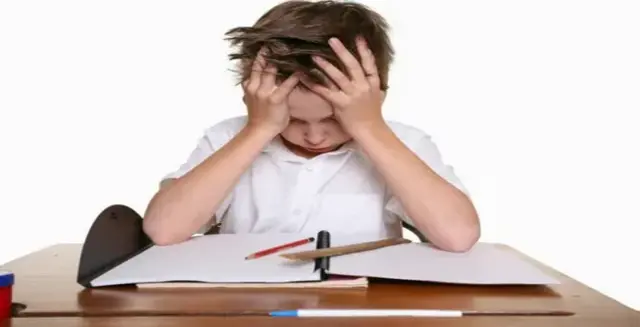
In today's fast-paced educational climate, kids are under growing pressure to succeed. However, low academic achievement remains a challenge for many. Academic performance reflects not only a student's knowledge, but also their ability to handle stress, stay motivated, and develop good study habits. Poor academic performance has a negative impact on students' confidence, future prospects, and overall well-being. Implementing an efficient school management system can streamline communication between teachers, students, and parents, fostering an environment that supports better academic outcomes. This blog will look at ways for improving academic performance and achieving long-term success in education.
Understanding the Causes of Poor Academic Performance
To improve academic performances, it is essential to first understand what causes poor academic achievement. Common factors include:
Lack of Motivation:
Students who struggle to find passion or meaning in their studies frequently perform poorly academically. It is difficult to keep focused on academics when there are no defined goals.
Learning Difficulties:
Many kids have undiagnosed learning difficulties, which can cause problems processing information. If these issues are not addressed, they might lead to poor academic performance.
Ineffective Study Habits:
Students who lack an organized study pattern tend to perform poorly. Cramming for examinations and skipping regular revision are bad practices that lead to low academic achievement.
Personal and environmental factors:
Family troubles, financial issues, or a disrupted home environment can all have an impact on a student's ability to concentrate on their studies. Furthermore, a lack of assistance from teachers or mentors may impede advancement.
By identifying these characteristics, students, parents, and educators can address the underlying causes of poor academic performance and lay the groundwork for future progress.
The Role of Teachers and Parents in Improving Academic Performances
Overcoming poor academic performance requires collaboration between teachers and parents. Both play a crucial role in providing the necessary support to help students improve.

For Teachers:
Teachers should examine each student's strengths and weaknesses. Tailoring instruction approaches to individual needs is critical to boosting academic success. Regular feedback can make a big impact for students who are struggling with their academic performance. Teachers can assist track students behaviour by providing constructive feedback and guidance.
Creating an interactive and interesting classroom atmosphere also encourages students to take an active role in their learning. Group conversations, hands-on projects, and real-world applications help students stay engaged and confident.
For Parents:
At home, parents engagement should create an environment conducive to learning. Establishing a designated study room, having clear goals, and supporting a consistent study regimen can all help improve academic success. Regular progress monitoring allows parents to intervene early when indicators of poor academic achievement emerge.
Communication is essential. Parents should maintain open channels of communication with teachers and be aware of their child's academic development. Giving children appreciation for tiny accomplishments encourages them to keep working hard, especially if they have previously struggled academically.
Effective Study Habits to Improve Academic Performance
Developing good study habits is one of the most effective methods to improve academic achievement. Students who adopt an organized approach to their studies are more likely to make progress. Here are some practical tips:
Time Management:
Schedule devoted study time every day to minimize cramming before exams. Breaking study sessions into small portions with short breaks in between improves information retention.
Active Learning Techniques:
Rather than simply reading notes, students should interact with the content. Summarizing courses, teaching the subject to others, and generating mind maps can all help students understand more.
Consistent Revision:
Reviewing previous classes on a regular basis helps to minimize knowledge overload. Students who check their notes on a weekly basis are more prepared for tests, which reduces stress and boosts academic success.
Building these habits takes time, but once established, they help kids overcome low academic performance and set them on the path to success.
Leveraging Technology to Boost Academic Performances
In today's digital age, technology provides students with strong tools for improving their academic achievement. Educational apps and platforms make learning more convenient and enjoyable. Here's how.
Online Learning Platforms:
Educational platforms offer additional resources to supplement classroom learning. These platforms provide tutorials, quizzes, and interactive courses tailored to different learning styles, allowing students to reinforce their knowledge.
Study Tool and apps:
Flashcard apps, time management tools, and grammar checkers are some of the digital tools that can help students keep organized and focused while studying. These technologies make it easier to manage time and study more effectively, which is especially beneficial for students who struggle with low academic achievement.
By leveraging technology, students can access resources that enhance their learning experience and improve academic performances.
Addressing Mental Health and Emotional Barriers
Mental health has a substantial impact on academic success. Stress, worry, and emotional difficulties can have a significant impact on a student's ability to concentrate and perform well in school. Addressing these hurdles is critical to overcoming low academic attainment.
Managing Stress and Anxiety:
Mindfulness exercises, deep breathing methods, and regular physical activity can help students relax and remain calm during exams or other stressful situations.
Seeking Professional Support:
When adolescents are facing serious emotional difficulties, it is critical to seek professional assistance. Counseling programs, school psychologists, and therapy can help kids deal with emotional stress and improve their academic achievement.
By addressing mental health concerns, students create a strong foundation for improving academic performances and achieving their goals.
Conclusion
Poor academic performance might be overwhelming, but with the appropriate tactics, it is fully possible to turn things around and succeed. Students can improve their academic performance by recognizing the causes of low attainment, developing effective study habits, utilizing technology, and addressing emotional hurdles. Communication and Collaboration among instructors, parents, and students is essential in this journey.
Remember that overcoming poor academic performance requires steady, gradual improvements over time rather than big adjustments immediately. With the appropriate strategy, students can not only enhance their academic performance but also gain the confidence necessary for long-term success.If you want learn more about school management system check out our blog Education Management with Our E-Class: The Best School Management System